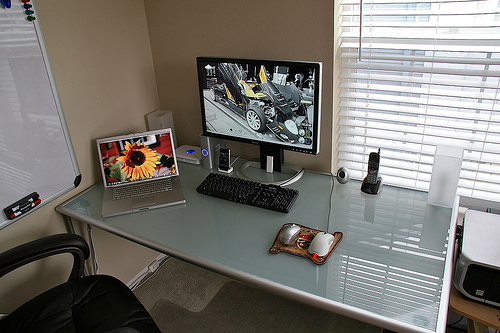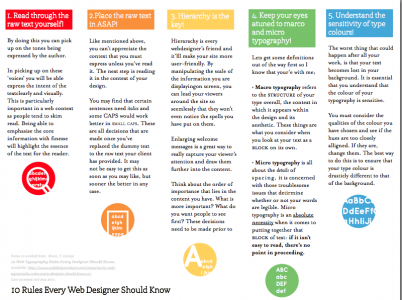 Actually turning your writing career into a business is a worthwhile step — but it takes a great deal of work. Marjorie Asturias agreed to give us a look into how she made that transition.
Actually turning your writing career into a business is a worthwhile step — but it takes a great deal of work. Marjorie Asturias agreed to give us a look into how she made that transition.
Can you tell us the story of how you transitioned from a freelance writer to a business owner with three team members?
It definitely wasn’t something I planned! As I’m sure you’ve heard from a lot of solo entrepreneurs, I originally just wanted to be able to continue being a freelancer and hopefully match the income I was making before I took the plunge to go on own.
As my business grew, however, I struggled to meet deadlines and fulfill my contracted commitments while at the same time continue my networking and business development efforts. I’m the kind of person who likes to both jump in with both feet while also doing extensive research on the best ways to do something. So while I’m building my business, I’m also soaking up all this information about starting and managing a small business from books, blogs, websites, and newsletters. One of the things that really struck a chord with me was the constant refrain of, “If you want to build a business for growth, you have to get help.”
It took me awhile to understand that deceptively simple command, but it soon made sense when I found myself working 16 to 17 hours a day juggling business development and the actual work of my business. I’m not 21 anymore — I can’t sustain that for long! I need my nine hours of sleep (although I still only get about seven on average). I also need time to sit back and actually do some big-sky, strategic thinking, so I’m not constantly just reacting to things.
The first person I brought on was a web developer who disappeared as soon as I paid him, which didn’t exactly inspire me to go out and hire someone else. But I knew that I couldn’t let that setback cripple me or my business, so after licking my wounds, I went out and was more careful about the next person I hired. The first one was a social media coordinator, who I hired on a part-time basis, maybe about five or so hours a week. The first time I paid her, I flinched because I didn’t like seeing money go out the door, but that feeling very quickly passed once I realized how much freeing it was to know that the work was being done but that I didn’t have to worry about it. I could spend more time doing high-value work that brings in business and know that the projects themselves were being taken care. Once I hired that first person, it was much easier to hire another, and then another.
How does your typical day with Blue Volcano Media differ from how you spent your time when you started out as a freelancer?
I spend way less time at my desk! When I was a freelancer, most of my assignments were with print magazines that were based elsewhere, or websites looking for content. I thus spent the vast majority of my time in my home office, pounding away on the keyboard. For variety, I would sometimes park myself at the local coffee shop, but that gets old really fast when you have to go to the bathroom and have to pack up everything just to do that.
Now, I still spend a lot of time at my desk, but about half of my week is spent meeting with clients or prospects or attending business development and networking events. I spend a little more time on the phone now (Skype or my mobile), but instead of interviews with article subjects, I’m usually talking with clients or prospects or meeting with my staff.
That’s also something else I spend more time on: project management. I have a virtual assistant who I would like to eventually turn into a full-time project manager, but for now she’s relatively new to the company so she’s still learning the ropes of how we do things, who our clients are, and what we do. So for now I’m the project manager, so I’m constantly emailing or chatting with the rest of the team to answer questions, follow up on projects or assign tasks and projects to them. My social media specialist is going on maternity leave soon, too, so I’ll be spending part of the time working with my assistant on taking over some of our social media accounts and training her on social media and the tools we use.
I’m also looking for a part-time SEO assistant, so that’s another thing I need to devote my time to that I never had to before: human resources. It’s not my favorite part of the job, but most entrepreneurs feel the same way, I’m sure! It has to be done, so I try and have my assistant do a lot of the front-end work like gathering candidates and reviewing credentials, while I just come in for the interviews and final decision.
What tactics were particularly important in letting you grow your business so quickly? Did specialization play a role in your growth?
Networking! It’s amazing how few freelancers do this, and many of those who do, they don’t do it consistently enough. I totally understand the desire to do as little of this as possible, but with very few exceptions, it’s almost impossible to grow a business without doing some kind of networking.
I’m not a natural networker — I’m an INFP! — but I can fake it. I’m usually exhausted after a round of meetings and networking events, and all I want to do is crawl into bed and read a book, but it’s not really as difficult as people make it out to be. For a lot of really driven networkers, they motivate themselves by pursuing a high goal, like meeting a hundred new people a week or getting 20 business cards per event, but I aim for quality, not quantity. It would terrify me to enter a room full of people I don’t know and try and gather even five business cards, much less 20, so I keep my goals in line with my personality: I try and meet one new person at each event. Just about anyone can do that, including most shy folks, and it takes the pressure off of glad-handing everyone you meet just to achieve an arbitrary number.
I joined two local Chambers the month I officially launched my company and tried to attend as many of the events as I could. I got lucky and landed a client at the very first event I attended at one Chamber, and he’s been wonderful at giving me referrals that later turned into business. But most of the time it’s just showing up, meeting new folks, greeting old friends (and the more often you attend, the more people you know the next time you go to a meeting or event, which is comforting), and getting your name and face out there. People do business with people they know and like, and they can’t do that if you’re not around.
And yes, specialization did help tremendously, especially since we specialize in a relatively new, sexy field. We originally had offered web development services, too, but I scrapped that pretty quickly. It’s not one of my strengths, although I built our company web site myself after our developer disappeared, so when we were doing web development for clients, I was spending most of my time just managing projects rather than doing the work. I also found out just how many web developers there are out there — I meet a new one at every networking event I attend — and realized that I didn’t want to compete in such a crowded space. Sure, there are a lot of folks in the Internet marketing space as well, but we’re one of the few that actually has significant experience (we’re talking years, not months or weeks, like some of our competitors), so we enjoy that competitive advantage.
Once we zeroed in exclusively on digital marketing and dropped web development, we were able to focus our work and our networking efforts better. Since all of us on staff are writers — three of us started out as bloggers years ago and only moved into the digital marketing space once we’d established ourselves in the blogosphere — we have a huge leg up on so much of our competition, many of whom rely on cheap content providers from overseas who can string SEO words together but not necessarily create content that the average American user can or would want to read. We understand language and its power to evoke certain emotional responses. We know that there’s a difference between, say, “precise” and “accurate,” and that people respond differently to both words. That’s a mighty compelling pitch to a prospective client, since they can be assured that we know what we’re doing and are not just throwing words on the screen.
What do you see happening with your business in the future?
I’d like to see continued growth in 2011. 2010 was a fantastic year for us in terms of revenue, which caught me by surprise because of the economy and the fact that I was pretty new at the whole entrepreneurial thing.
I know it’s a cliche to say something about wanting world domination, but really all I want is to be able to continue to create value for our clients and, internally, develop my employees’ expertise. I don’t think I would ever want a huge company, but I do see growth in 2011, with perhaps a couple more additional employees with particular expertise in SEO and content. Beyond that, I don’t really know what will happen. If you’ve read “Rework” by the guys from 37Signals, you know that they don’t really believe in long-term plans either. I do some blue-sky thinking, but mostly about the business itself — where is SEO going to be in six months? what are the potential effects of Facebook’s recent changes on our clients’ fan pages? So much change happens in this business that it’s difficult enough to keep up with everything, much less project what will happen to my own company down the road.
What advice would you give to a freelance writer considering how to create a business out of a freelance career?
Prepare to work the hardest you’ve ever worked in your life. I started out my working life as a Taco Bell crew member when I was sixteen, working two hot Texas summers surrounded by hot ovens and pots. I was a wind energy developer/landman before I pursued freelance writing full-time, so I traveled frequently throughout the Southwest, scouting out dusty, windy dirt for multimillion-dollar wind projects, driving thousands of miles on lonely highways, negotiating with savvy rural landowners and farmers, attending trade shows, dealing with the colorful personalities in the energy industry.
This? This is the hardest job I’ve ever had. It’s also the most fulfilling, but make no mistake: it requires a lot of self-discipline, organization, and a desire to learn how to sell. Because that’s what you do when you own your own business: sell. If you don’t like selling, don’t start a business. I hate selling, but I’ve figured out a way to sell that fits my personality and doesn’t make me want to shoot myself at the end of the day. If you believe in what you do and what you can offer your clients, the selling comes pretty easily anyway. But you have to be comfortable talking to people and meeting new folks all the time. When you’re a freelancer, it can be easy doing all your selling via pitch letters and query letters, but with your own business, most of your selling will be offline, in person.
Be prepared to work long hours, sometimes seven days a week. As a freelancer, you already know that if you’re not working, you’re not earning, so you’ll at least understand that part of owning your own business. You’ll need to learn how to juggle the many, many, many little tasks that small business ownership requires, from bookkeeping to taxes to invoicing to CRM (customer relationship management). And if you expect to grow, you’ll need to learn how to hire and fire people. The 37Signals guys believe in hiring slow and firing fast. As a generally nice, accommodating person, I still have difficulty with this, but it’s so important. No one will ever value your business as much as you do, so you’ll need to demand that your employees treat it with respect, whether they work in an office or work from home.
Oh, and do get a nice suit. As a freelancer, you can get away with wearing a nice pair of jeans, blazer and shirt, but as a business owner, you’ll need to up the game a little and dress up for networking events. Trust me — people notice.






